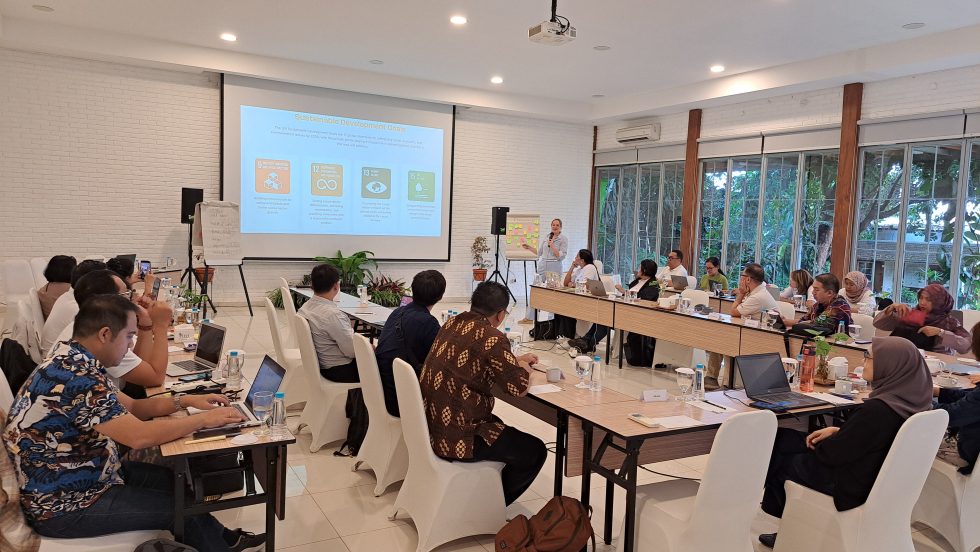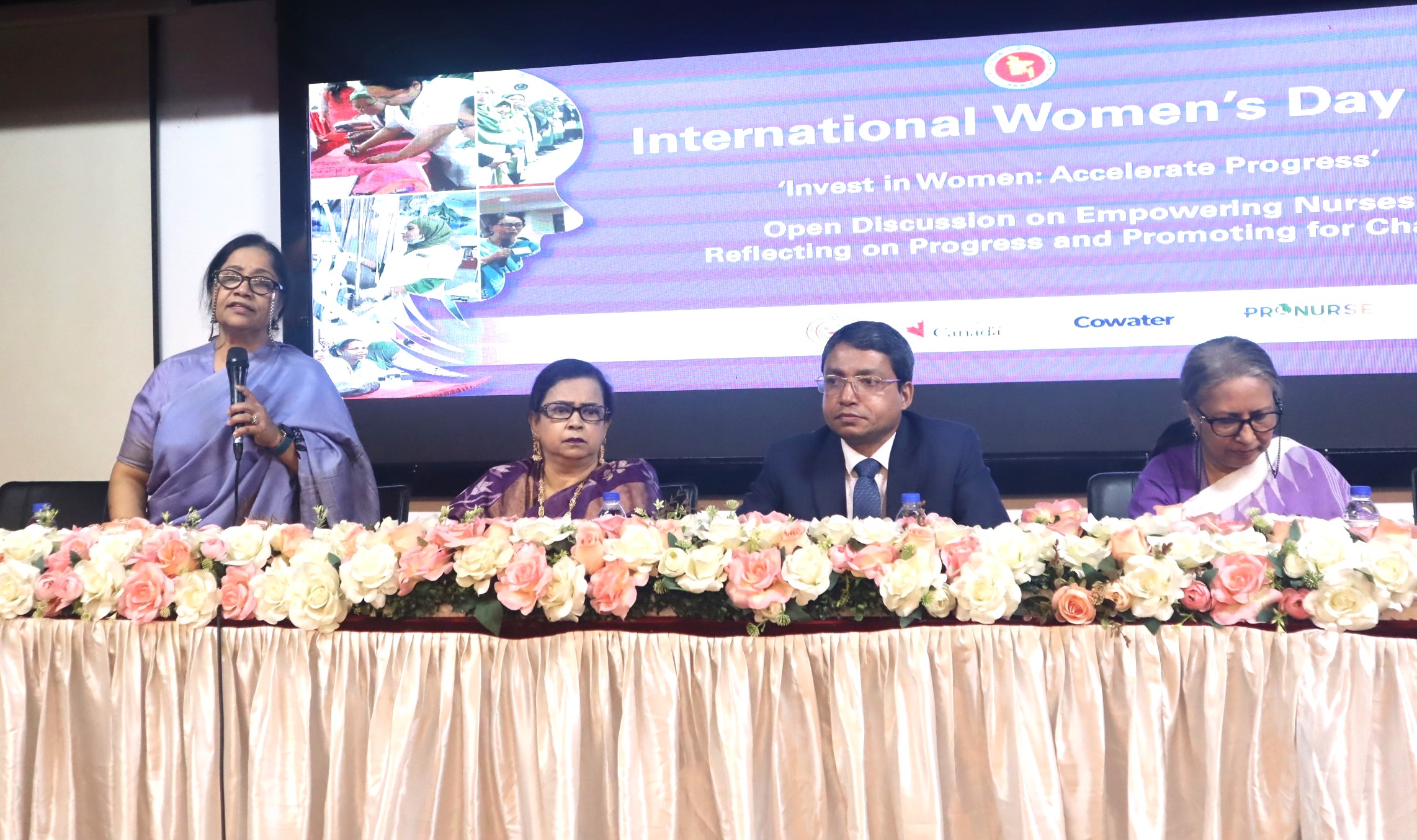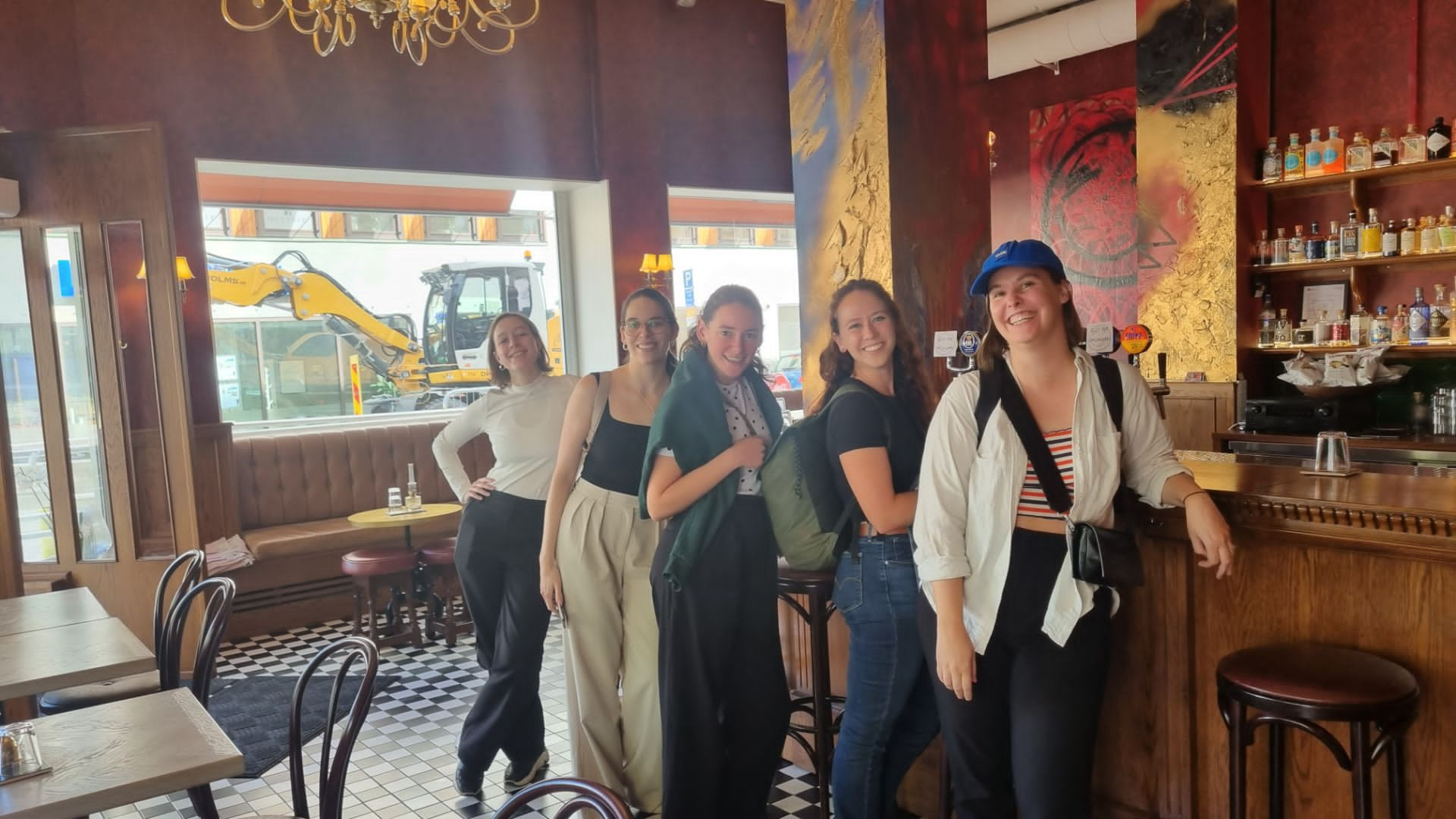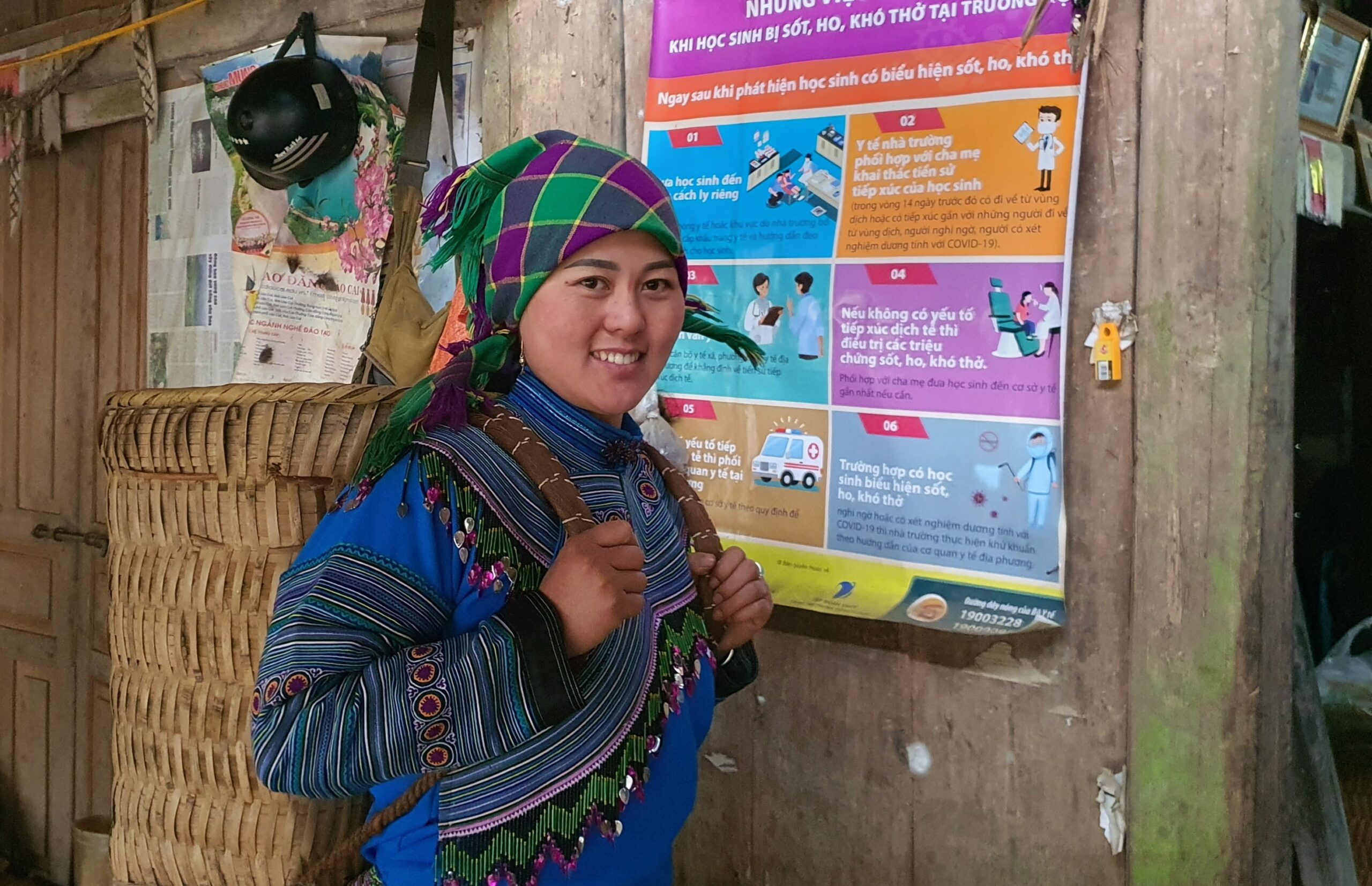
When change begins at home
Linh welcomed us in her house with a cheerful smile that brightened a cold and drizzly afternoon.
Trang Thi Ngoc Linh, known as Linh, is 31 years old and is a member of the Mong ethnic community. Caught up in the middle of a business transaction, she pointed to a bamboo basket and explained that a customer from Hanoi had ordered 10 kg of ‘cát cánh’ for their restaurant’s ‘thắng cố’ dish.
Cát cánh is a herbaceous plant of the bellflower family used in traditional medicine and cooking. This annual crop is a good source of income for households in Linh’s Ta Van Chu Commune.
“I have just returned from picking them. The main season is over, so the price is VND 55,000 ($3 CAD) per kilogram. In mid-season I could get only VND 35,000 ($2 CAD) per kilo,” said Linh.
Just two years ago it would have been hard to imagine Linh so confidently managing a business transaction via her mobile phone.
Linh finished grade 12 when she was 17 and soon after fell in love and got married. She moved in with her husband and his family in Ta Van Chu Commune, Bac Ha District, Lao Cai Province. This was a turning point for a young girl who has always lived and worked with her immediate family.
Before getting married, Linh had studied and supported her mother with maize farming. Her father was a buffalo trader, so her family was considered relatively well-off. When she moved in to live with her husband, her new position as the oldest daughter-in-law of a large family kept her busy from morning until night.
On her husband’s family farm of three hectares, Linh started cultivating rice, maize, potato, groundnuts, tea and plums. At home, she was caring for the animals and doing household chores.
With no money of her own and not being particularly good at farming or housework, Linh quickly found out she had almost no voice in her new home. She would follow her parents-in-law’s demands and had no control over the money she earned. Linh was only able to move around the house and go to the fields.
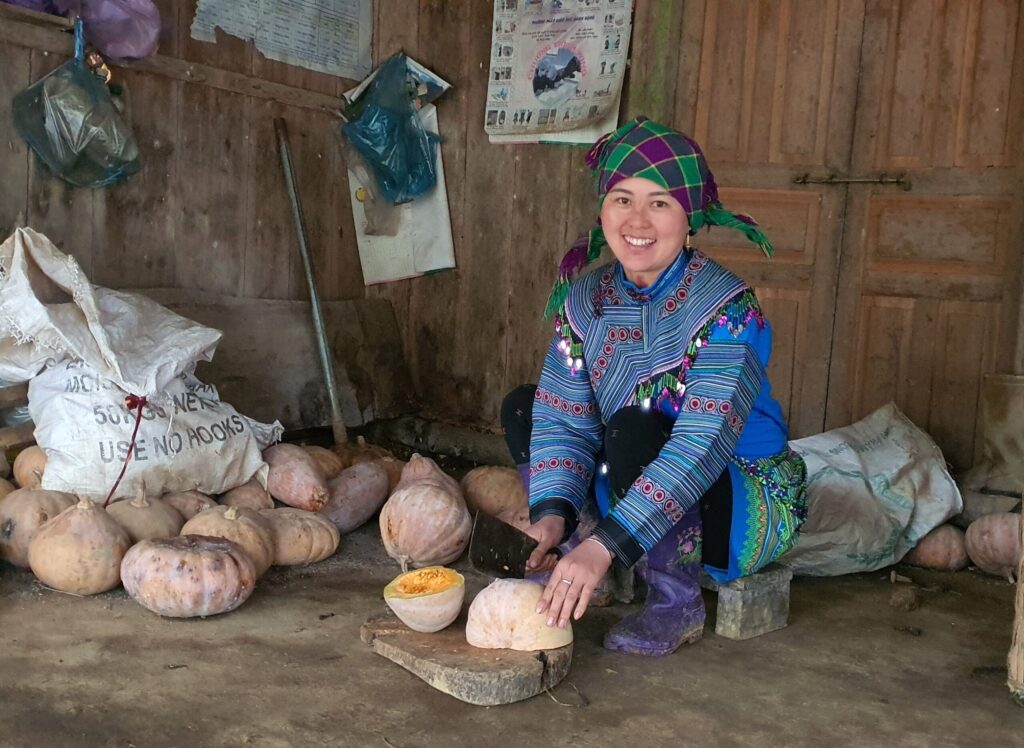
Linh at her home in Ta Van Chu commune, Bac Ha district, Lao Cai province
Linh became a beneficiary of the Australian-funded Gender Responsive Equitable Agriculture and Tourism (GREAT) Program. The Program is implemented by Cowater International and Helvetas Vietnam. Since then, her skills and confidence have improved. The project is focused on women’s economic empowerment through market systems development in medicinal plants and inter-cropping with Shan Tea. With support from the project, Linh learned about new techniques for cultivating medicinal plants and organic tea. She also learned about gender equality and household financial management.
Linh shared her newly acquired knowledge with her husband and discussed how they might apply it. At first, Linh faced resistance from her husband and her parents-in-law. By continuing to share the benefits of the new agricultural techniques and practices she had learned, she was able to persuade them to try cultivating organic tea and medicinal plants in line with the Good Agricultural and Collecting Practices (GACP) standard.
Previously, the family’s income from cash crops was limited and unstable, and sometimes their customers would not pay them. This changed after the family started growing medicinal plants. The plants are sold from the farm gate at good prices, resulting in a higher and more stable income for the family. As a result, Linh expanded the medicinal plant growing areas and started to care for the uncultivated tea garden.
From one hectare of medicinal plants, Linh was able to harvest 1.7 tonnes and earned VND 34 million ($1800 CAD) in one year. This additional income was in addition to revenue generated from their plum and tea gardens. It has had a big impact on the financial situation of her household.
As part her participation in GREAT, Linh also received training in leadership and presentation skills. She was coached to be a trainer and is now helping men and women in Bac Ha district to strengthen these important skills.
Linh’s life has changed significantly. She feels more empowered in her household because the income she is earning is covering most of her family’s food and living costs. Her parents-in-law have greater respect for her abilities and contributions to the household and she has more freedom to make her decisions and move around freely.
Linh has plans to continue investing in medicinal plants and tea cultivation and to begin identifying new customers.
Linh’s story is an example for many women in the Bac Ha remote mountainous region. It is inspiring to see that more women are engaging in small-scale high-value agriculture to support a better life for their families.
Related Content
Sustainability standards are critical to a more competitive MSME sector in Indonesia
Mirco, Small and Medium-sized Enterprises (MSMEs) play a crucial role in the Indonesian economy, yet they face significant challenges in accessing global markets. This can be attributed to various factors, […]
ProNurse Project celebrates International Women’s Day 2024
This year’s International Women’s Day theme was “Invest in Women: Accelerate Progress”. To celebrate and raise awareness of the role of women in the nursing sector of Bangladesh, ProNurse Project […]




